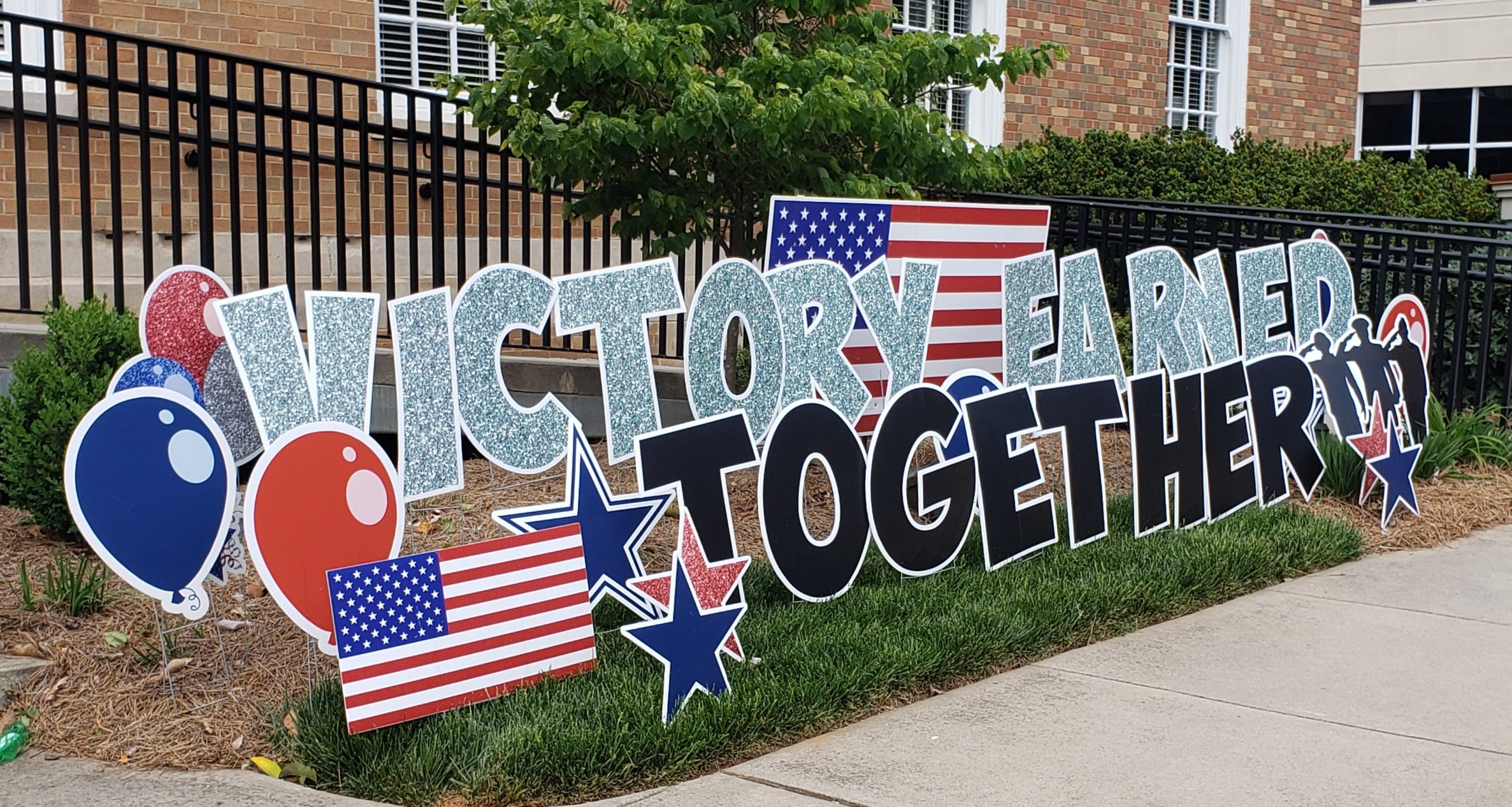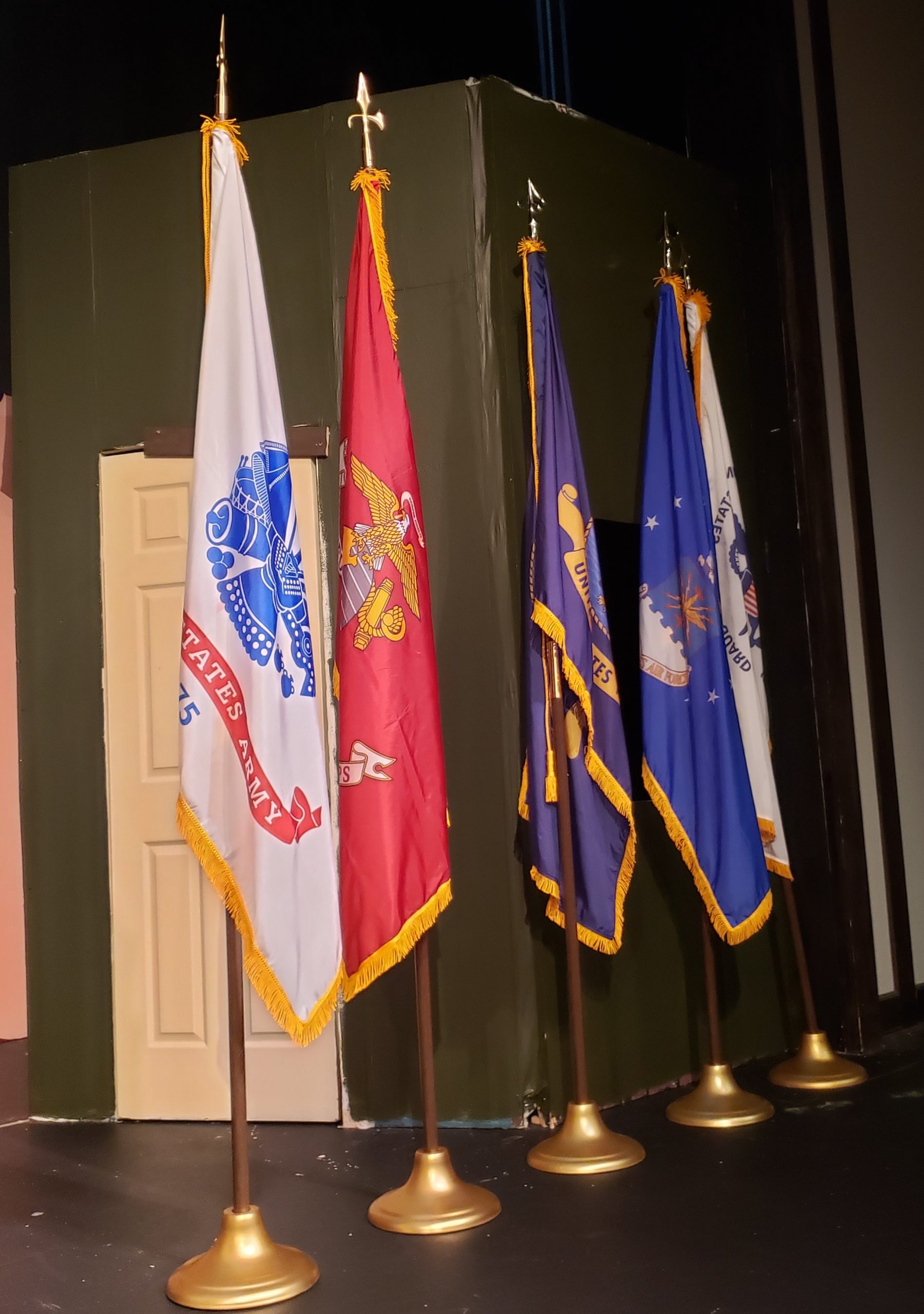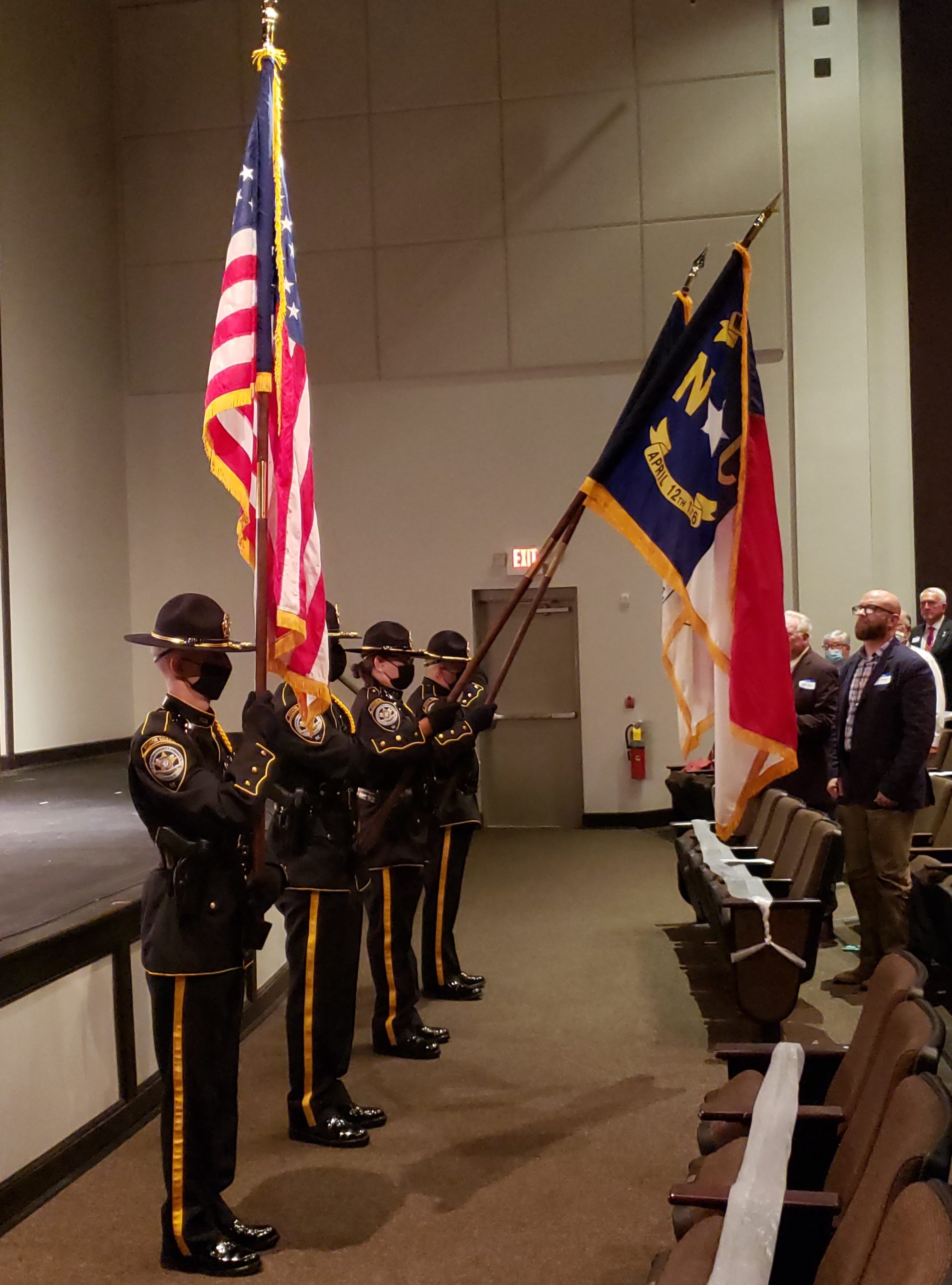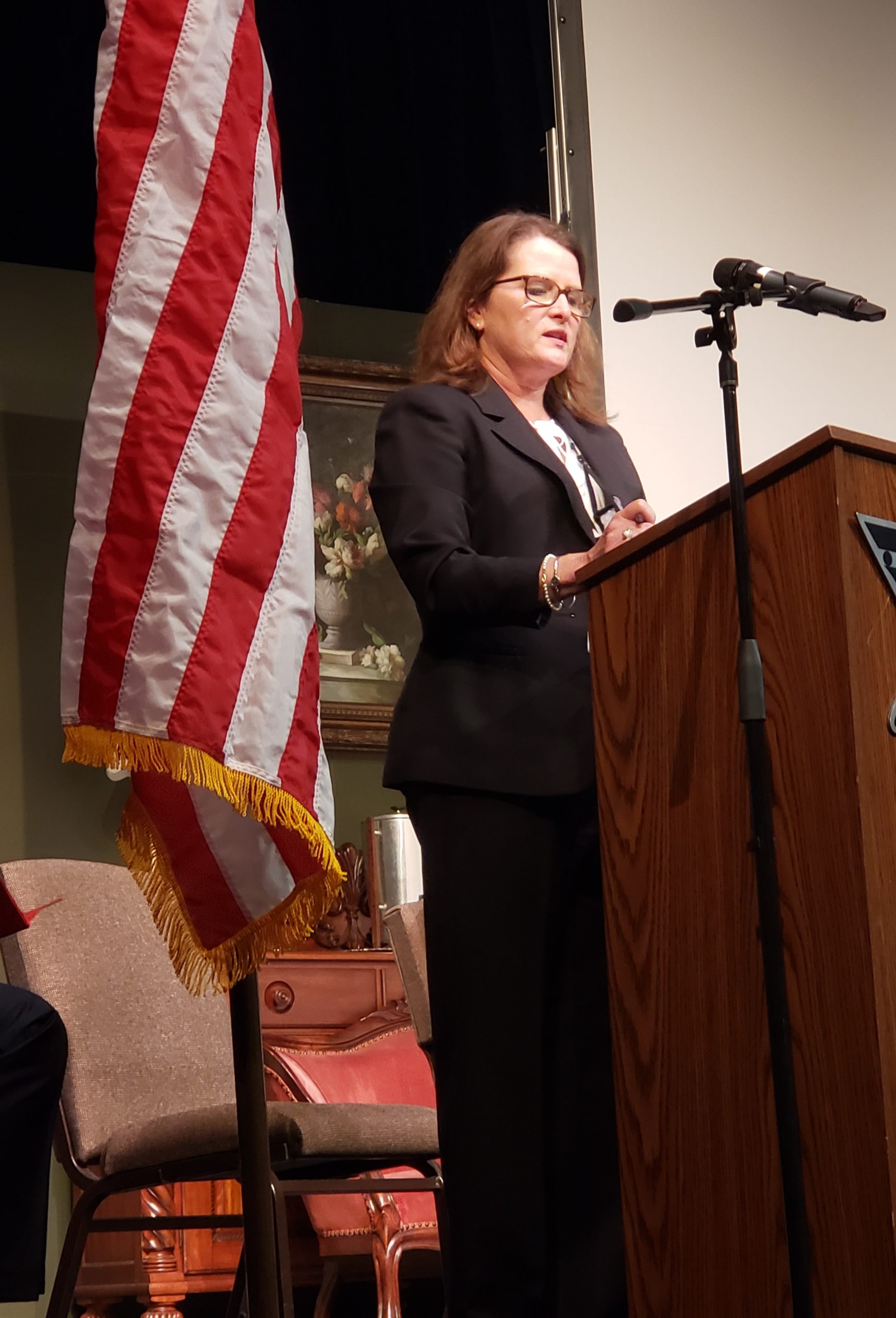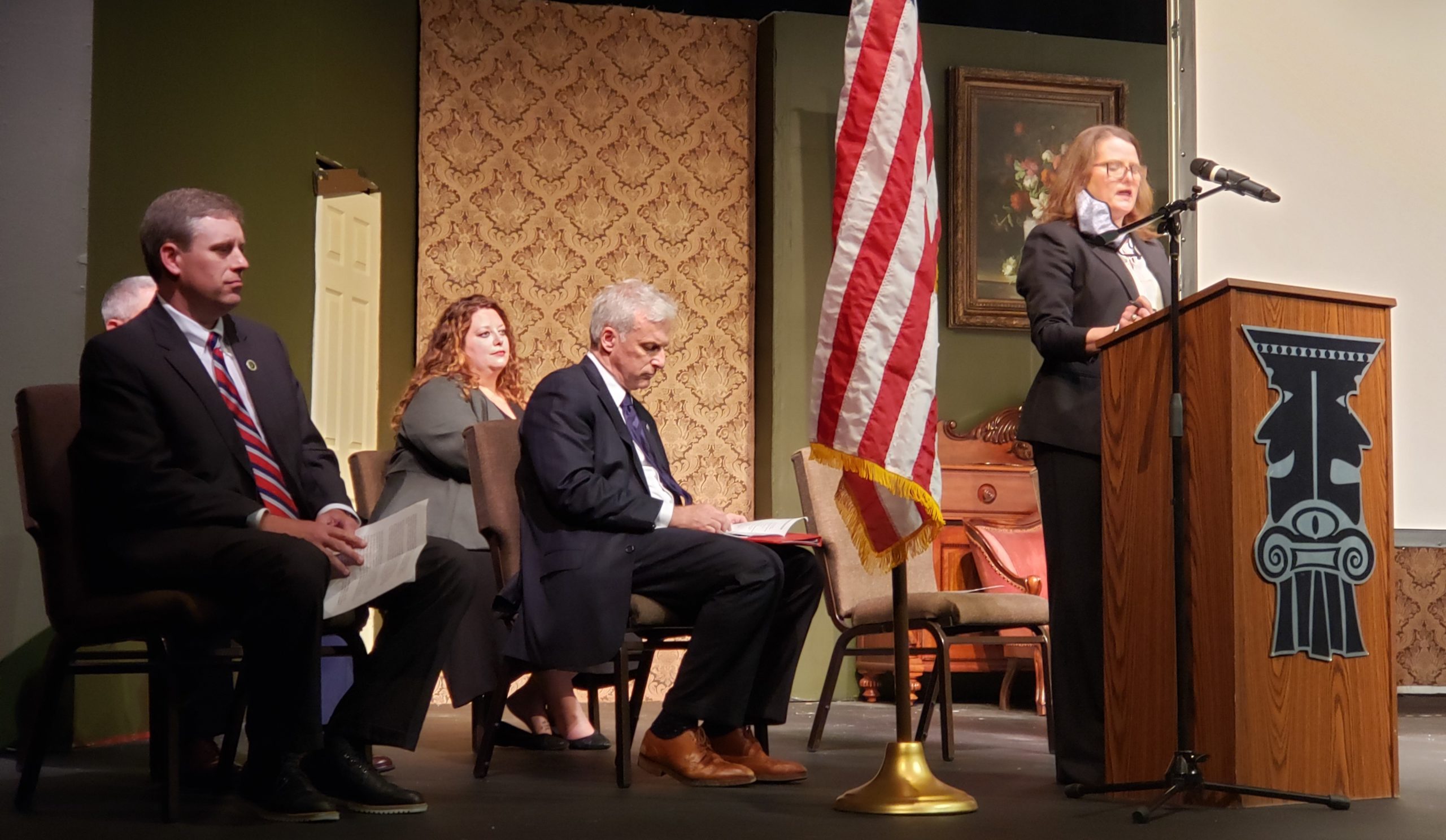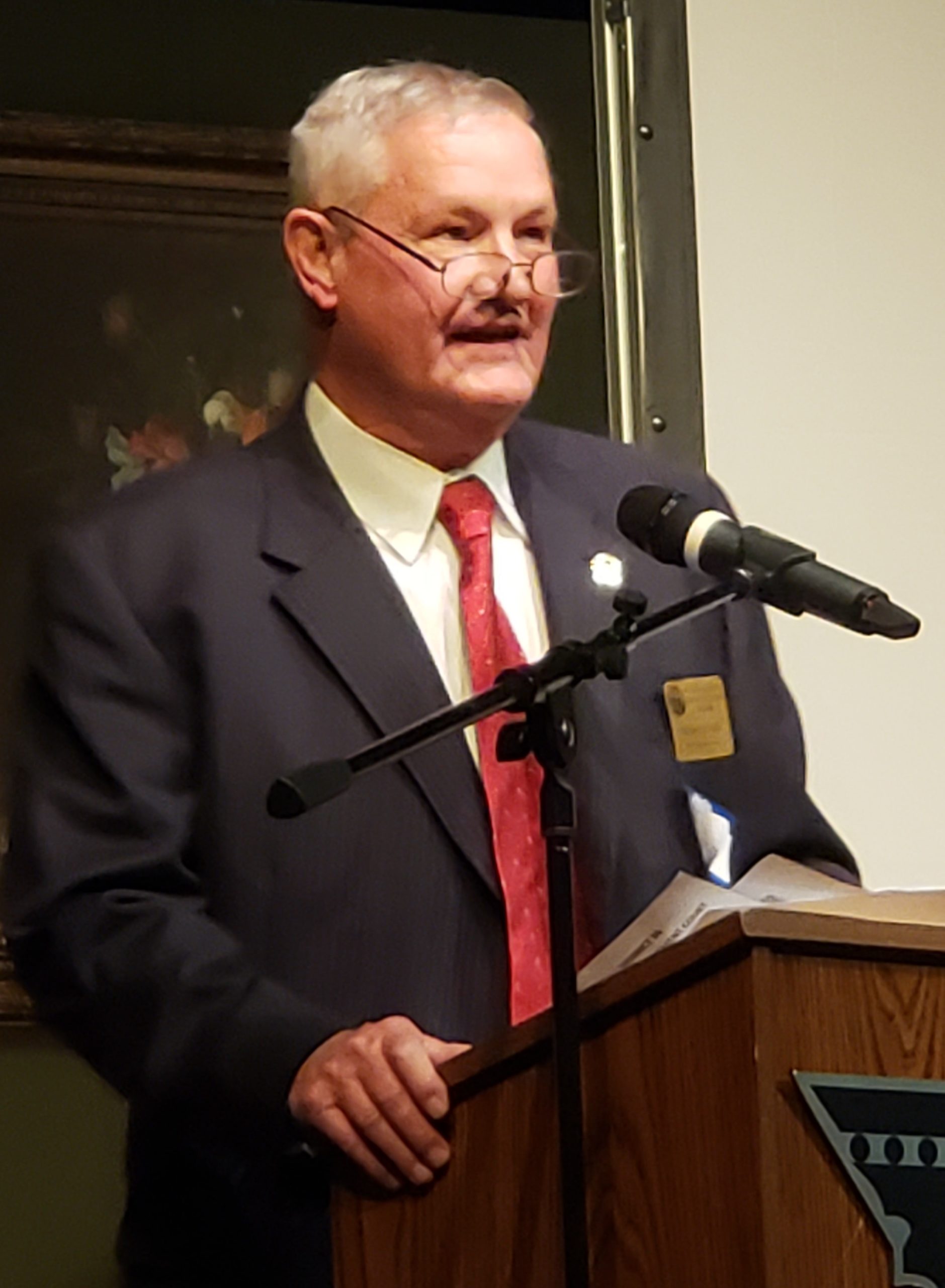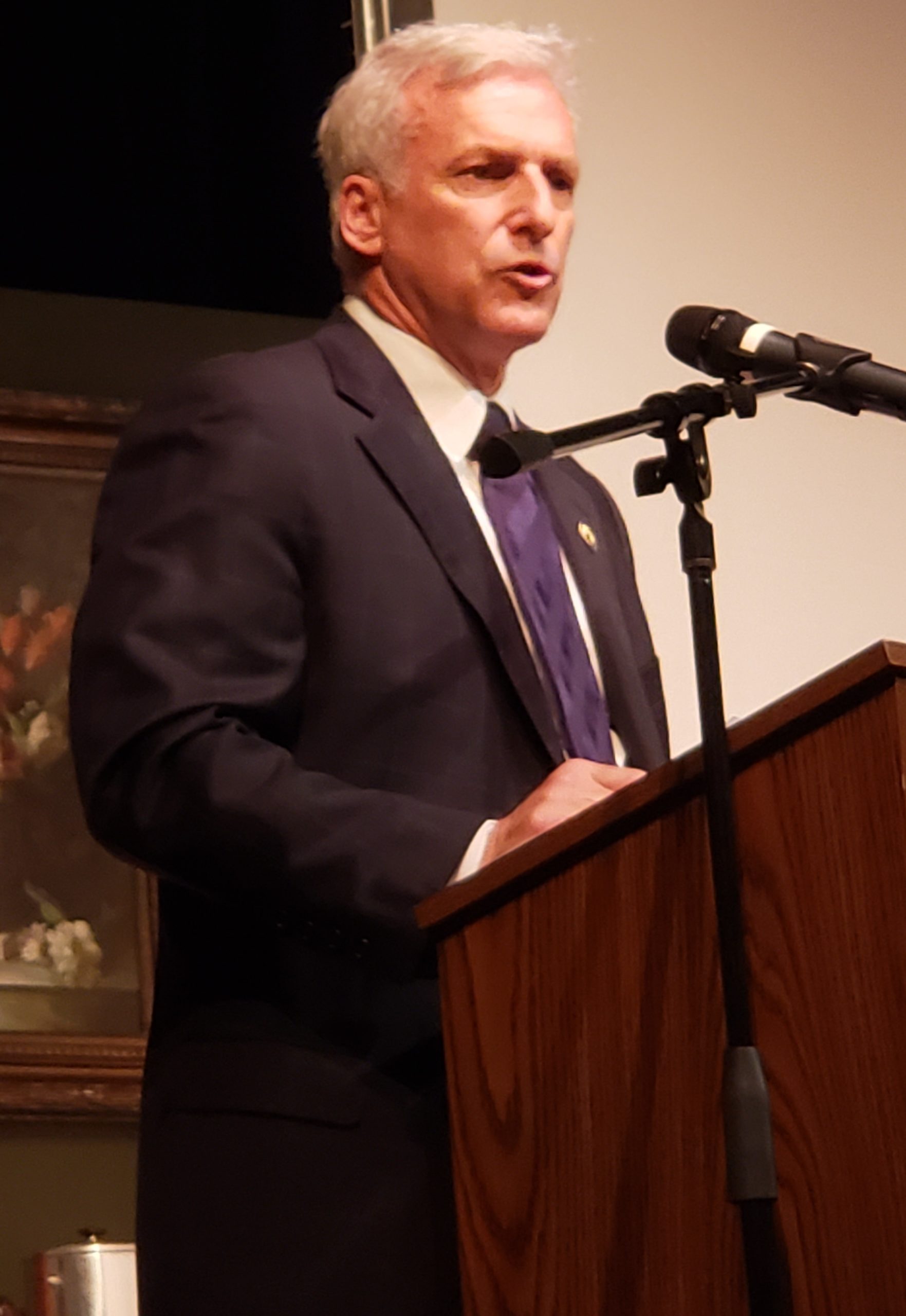“Victory Earned Together.”
That’s the motto of the Veterans’ Treatment Court in Catawba County that has been transformed from a vision to a reality.
Following months of preparation and training, the newest court setting in the 36th Prosecutorial District officially kicked off with an opening ceremony Thursday, April 29, 2021, at the Green Room Community Theatre in Newton.
Numerous state and local dignitaries gathered for the VTC’s kickoff celebration to acknowledge the beginning of a program to support and assist local veterans that has been two years in the making.
Retired Army Col. Martin Falls, the Deputy Secretary for the North Carolina Department of Military and Veterans Affairs and a Catawba County native, acknowledged the establishment and importance of the Veterans’ Treatment Court in the 36th Prosecutorial District.
“The Catawba County Veterans’ Treatment Court will make sure these men and women meet their obligations to themselves, the court and community,” he said. “It will keep the system moving forward. It will transform lives, strengthen communities and support those who served in uniform.
“I’d like to commend (36th Prosecutorial) District Attorney Scott Reilly and (Administrative Assistant) Tammy West for the hard work, the dedication and the foresight to bring this idea to reality.”
Catawba – with a population of veterans approaching 10,000 residents – is just the fifth county in the state to have a treatment court for veterans, joining Buncombe, Cumberland, Forsyth and Harnett counties in providing such assistance to veterans who have cases in the court system. Veterans’ Treatment Court in Catawba County will take place every other Thursday, with the first session scheduled for May 13, 2021.
The idea of a Veterans’ Treatment Court in Catawba County started as a vision of Reilly during his campaign. In early 2019, he appointed West with the task of developing the framework for the program. From there, everything fell into place for its implementation, from securing funds to the formation of the VTC team.
Reilly acknowledged West’s role in researching such courts, recruiting team members and writing the grant that will support the program as it assists veterans.
“A Veterans’ Treatment Court gives veterans who have lost their way another chance, and if anyone has earned a second chance, it’s those that have donned the uniform of our country,” Reilly said. “The most profound reason we are opening up a Veterans’ Treatment Court in Catawba County is because it is the right thing to do for those veterans who have not been able to come to terms with their lives after experiencing what most of us never have or never will. Veterans make sacrifices so that you and I can have and enjoy our freedoms. I can’t think of a population that’s more deserving of help.”
The court offers a means to divert veterans from the traditional criminal justice system and provides them the support and stability they need to lead productive and law-abiding lives, all while being judicially monitored.
The VTC is a court-supervised treatment program for veteran offenders. It is a voluntary, court-ordered program that requires regular court appearances and attendance at treatment sessions, and includes but is not limited to: drug testing, individual and group counseling, meetings with assigned probation officer, meetings with assigned mentors and regular attendance at community support meetings.
The foundation of Catawba’s VTC is based on and promotes three essential values:
1) Respect for self and others;
2) Personal responsibility; and
3) Honesty
Program length for those veterans involved in the VTC will be determined by a participant’s progress in his/her treatment and recovery but will be no less than 12 months and no more than 24 months.
The VTC will provide support and rehabilitation through comprehensive substance abuse and/or mental health treatment, education, vocational programs and community resource referrals for housing, childcare and transportation to veterans involved in the criminal justice system who have trouble returning to civilian life. Its aim is to help them get back on the path to becoming productive members of the community.
North Carolina Supreme Court Chief Justice Paul Newby was not able to attend Thursday’s ceremony, but he sent a video message regarding Catawba’s Veterans’ Treatment Court to address the significance of its creation.
“I applaud you for your vision of establishing this Veterans’ Treatment Court,” Newby said. “It is so important that we take care of the men and women who have put their lives on the line to take care of us.”
Catawba County’s grant application was accepted and approved by the Bureau of Justice Administration (BJA) in October 2020 to allocate funding for the establishment of the treatment court.
The grant funds awarded by the BJA’s Office of Justice Programs will be used to fund a court coordinator, court-associated operating costs, equipment expenses, program materials and drug testing. The total amount of grant funding that will be allocated is $339,323 over a period of three years.
Awarding of the grant funding came after the Catawba County Board of Commissioners unanimously approved DA Reilly’s request to submit a grant application during a meeting in April 2020. That request was aimed at securing much-needed funding to provide a support network for those veterans who struggle to reintegrate into society because of mental health and substance abuse disorders.
“It has been a long road, but the District 36 Veterans’ Treatment Court team and mentors stand ready to assist those veterans who are involved in the justice system due to substance abuse disorders, mental health issues, PTSD, military sexual trauma or other issues related to military service,” West said. “These are the brave men and women who have served in Vietnam, Korea, Grenada, Iraq and Afghanistan, serving in the Army, Navy, Air Force, Marines and Coast Guard. They have seen and done things most of us don’t want to even think about. They put themselves in harm’s way so we can live free.
“Serving veterans with this court is a high calling this team does not take lightly. We look forward to serving those who have served us so well.”
Members of the treatment court team met virtually for instructional sessions in June 2020 to receive training on the implementation and operation of the court, and they continued such meetings to move forward with development of the court offered to aid and benefit veterans and their families.
Following is a list of VTC team members:
- Jared Weaver (VTC Coordinator)
- David Aycock (VTC Judge)
- Jaime Arbelaez (Law Enforcement Representative)
- Jim Clay and Julie Walker (Treatment Providers)
- Heather Higgins (Defense Attorney)
- Kay Holtzinger and Katherine Houghton (Veteran Justice Outreach)
- Blake Knight (Community Corrections)
- Jack McConnell (Treatment Provider)
- Kim Sigmon (Clerk of Court)
- Lance Sigmon (Prosecutor)
- Brandi Tolbert (District Court Judges’ Office)
- Cindy Travis (Veterans’ Services Officer)
“Each member of the Veterans’ Treatment Court staff and volunteer mentors has a personal connection to the military. Some of us have personally served; others have close family members who are veterans,” said Lance Sigmon, a retired Air Force lieutenant colonel. “Through this unique collection of dedicated individuals, we can tap into the unique aspects of our shared military experiences to benefit those veterans who need direction, support and oversight. By re-instilling a sense of pride and camaraderie, our goal is to create an environment equipped to make the veteran stand proud and again be a productive member of his/her community. And with the help and support of people like you and others in this community, we can succeed.
“As our motto notes: it is a ‘Victory Earned Together’ (VET). So, let’s go forward as a team and make a difference in a veteran’s life.”
VTC2: Flags representing the branches of the United States Armed Forces are shown during the opening ceremony for the Veterans’ Treatment Court in Catawba County.
VTC3: Members of the Catawba County Sheriff’s Office Color Guard present the colors during the opening ceremony for the Veterans’ Treatment Court in Catawba County.
VTC4: Catawba County District Attorney’s Office Administrative Assistant Tammy West presents members of the Veterans’ Treatment Court team on Thursday.
VTC5: Thirty-sixth Prosecutorial District Attorney Scott Reilly makes remarks during Thursday’s opening ceremony for the newly-formed Veterans’ Treatment Court in Catawba County.
VTC6: Catawba County District Attorney’s Office Administrative Assistant Tammy West addresses those people attending the opening ceremony for the Veterans’ Treatment Court on Thursday.
VTC7: Retired Army Col. Martin Falls, the North Carolina Deputy Secretary for the Department of Military and Veterans Affairs and a Catawba County native, speaks during Thursday’s opening ceremony for the Catawba County Veterans’ Treatment Court.
VTC8: District Attorney Scott Reilly talks about the important role the Veterans’ Treatment Court will play in the lives of military veterans from Catawba County.
_
CONTACT: Nathan Key
Phone: 828-695-6193
Email: Nathan.D.Key@nccourts.org


